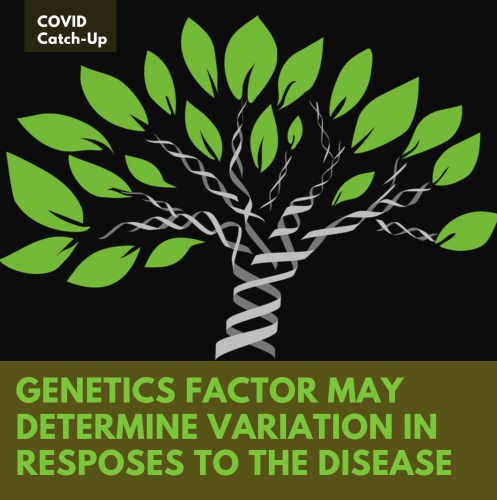Graphic by Tai Michaels.
The debate between the importance of personalized medicine compared to general medicine is a growing one. As gene sequencing becomes increasingly cheap and easy, doctors are turning to possibly creating personalized medical plans based on each of our genetic codes. With the rise of a national pandemic, some have argued that it’s more useful to look at the larger picture: focus on public health, and a “one size fits all” solution in order to help the most people.
A new study may argue otherwise, however. What if our vulnerability to COVID-19 did not only depend on our underlying diseases and age, but on our genes which interact with the virus? It’s an exciting theory that may answer why two individuals may have drastically different reactions to COVID-19.
Researchers at the University of California-Riverside have investigated expression of genes in our DNA that interact with COVID-19. While it has been known that COVID-19 binds to receptor ACE2, and that humans express ACE2, if and how humans express this gene differently has been a mystery. The scientists found that ACE2, CLEC4G, and CLEC4M (genes that help COVID-19 enter our cells), SLC27A2 and PKP2 (genes that inhibit viral replication) and PTGS2 (a gene that controls our fever response) are genes expressed wildly differently in our bodies.
While we all carry these genes in our bodies, our different levels of expression may dictate our bodies’ response to the coronavirus. It’s an alarming discovery, but one that sheds light on the elusive mechanisms of COVID-19. It raises the possibility of genetic testing for higher or lower risk individuals, or even for creating plans for personalized care during the pandemic.

